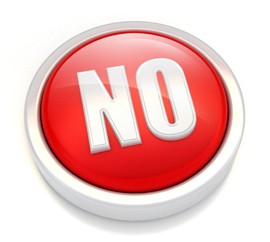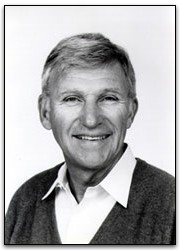When To Say NO To A Customer
They’re your business’s lifeblood, but that doesn’t mean you have to be a push over.
By Bob Reiss | August 6, 2010
This is the August column in Entrepreneur
 All customers, especially buyers in business-to-business transactions, have a responsibility to their pocketbook, which you, as the provider of services or goods, need to understand. The customer’s goal is to get the best deal they can. In pursuing their agenda, customers may cajole push or even demand the best deal possible. Sellers shouldn’t take this personally. The customer is only doing his job.
All customers, especially buyers in business-to-business transactions, have a responsibility to their pocketbook, which you, as the provider of services or goods, need to understand. The customer’s goal is to get the best deal they can. In pursuing their agenda, customers may cajole push or even demand the best deal possible. Sellers shouldn’t take this personally. The customer is only doing his job.
But, as important as it is to satisfy your customers, there are times when the right thing to do is to say no. Here are some examples:
1. When a Customer Wants an Unreasonable Discount
If you drop your price or give major concessions just because a large buyer pushes you, they will not accept your deal the next time around as you’ve taught them to never accept the first offer. Also, you have a duty to protect your other customers, and make sure they are not penalized for not pushing you as hard.
There are times when you need a particular customer or order. However, you should not succumb to the pressure of giving a better deal unless you get something in return, like a bigger order, better payment terms, free advertising, etc. If you don’t, then no is in order.
2. When a Customer Wants Inside Info on Competitors
When a big customer presses you for proprietary information about another one of your accounts, you must decline this trap. Try saying something like, “it’s not the right thing to do, just as I wouldn’t tell them about my dealings with you.” It can be difficult to say no to an important customer; but this is important because if you spill the beans on his competitor, he won’t trust you to keep his dealings with you confidential. If trust is broken, growth will be inhibited.
3. When a Customer is Rude
When a customer is nasty and rude to any of your employees, it can be a problem for you. The nastiness may take the form of unwanted sexual advances, screaming, cursing or belittling; whatever the circumstances, I believe managers need to confront this type of customer and explain that they must modify their behavior. If this doesn’t work, drop that customer. It will do wonders for the spirit, pride and productivity of your employees.
4. When a Customer Asks for Payoff in Kind
When a buyer asks for a payoff in cash or kind, this is over the line in my opinion. Many like to justify this by saying “everyone else is doing it.” Aside from it being wrong, think of the consequences if it ever became public knowledge that you were a briber, or open to bribes. There goes your reputation with family, employees, friends, investors, customers, et al.
5. When a Customer Breaks an Agreement
When a customer breaks an agreement, you need to hold them to it unless they have a good reason. One broken agreement will lead to others, and the result is an unprofitable client on your books. This is not to suggest you shouldn’t help a deserving customer with a problem. If they have a good history with you, if they explain their problem and ask (no demands) for your help, and if it’s within your ability to do so, I say don’t hesitate. We’ve all had occasion to work out payment plans for good customers who are experiencing cash shortages. I’ve let clients set up a schedule of repayments, most of the time it has worked well, and I wound up with a long-time loyal customer.
But if you’re losing money and you can’t revise price, servicing, or other costs to make this a profitable account, or if there is not a strategic reason to keep the customer, you should just say no.
Most of the time, customers know that your no was the right thing, even if they didn’t get their way, and they will respect you for it. There is value in saying no to customers. (It’s also a good word in parenting.)
 Bob Reiss is the author of Bootstrapping 101: Tips to Build Your Business with Limited Cash and Free Outside Help. He has been involved in 16 start-ups, is a three time INC 500 winner, a graduate of Columbia University and Harvard Business School and the subject of two Harvard case studies. He’s a frequent speaker at university entrepreneurial classes.
Bob Reiss is the author of Bootstrapping 101: Tips to Build Your Business with Limited Cash and Free Outside Help. He has been involved in 16 start-ups, is a three time INC 500 winner, a graduate of Columbia University and Harvard Business School and the subject of two Harvard case studies. He’s a frequent speaker at university entrepreneurial classes.
